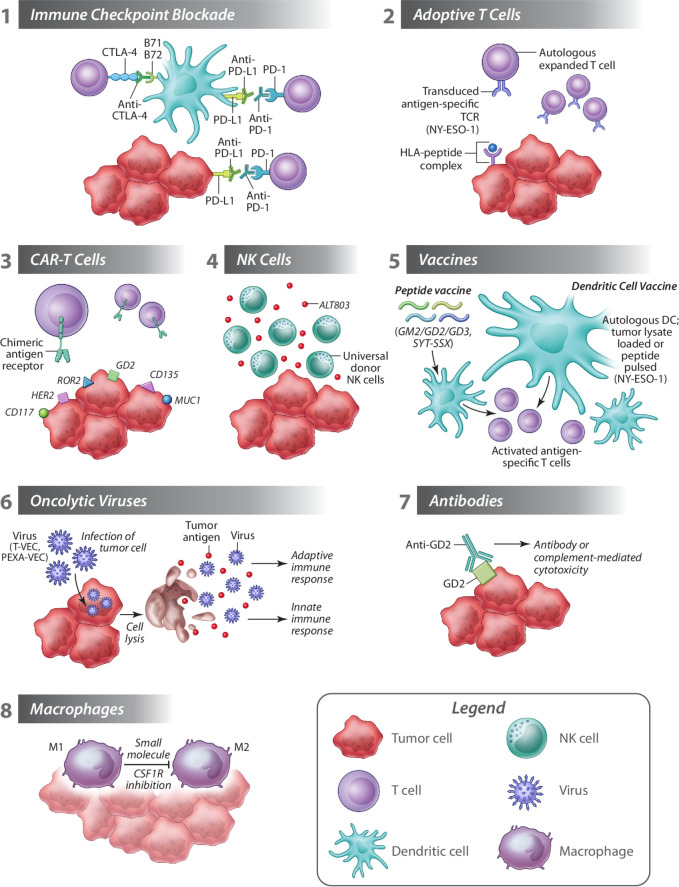Figure 1.
Harnessing the immune system against sarcoma. (1) Immune checkpoint inhibitors restore the ability of immune cells (eg, cytotoxic T cells) to mediate anti-cancer immunity. (2) Autologous T cells transduced with a T cell receptor specific for tumor antigens are expanded and reinfused in patients where they exert cytotoxic functions. (3) CAR T cells against several sarcoma specific antigens can be designed to further boost adoptive T cell therapy. (4) Universal donor NK cells administered with ALT803 may enhance the therapeutic effects of NK cells. (5) Therapeutic cancer vaccines are designed to stimulate a patient’s immune system against cancer and typically target a tumor antigen. Vaccine approaches evaluated in sarcoma include peptide vaccines, or dendritic cell vaccines loaded with tumor lysate or pulsed with antigenic peptide. (6) Oncolytic viruses T-VEC and Pexa-VEC are being evaluated in sarcoma, and promote tumor destruction by direct lysis of tumor cells, transgene expression (eg, GM-CSF) and stimulation of adaptive and innate immune responses. (7) Anti-tumor immunity can be promoted by antibodies targeting tumor antigens (eg, GD2) eliciting antibody-mediated or complement-mediated cytotoxicity. (8) Molecules preventing polarization of anti-cancer M1 macrophages to tumor-promoting M2 macrophages can potentiate anti-cancer immunity in sarcoma. CAR, chimeric antigen receptors; CSF1R, colony stimulating factor 1 receptor; GM-CSF, granulocyte-macrophage colony-stimulating factor; NK, natural killer; T-VEC, talimogene laherparepvec.

